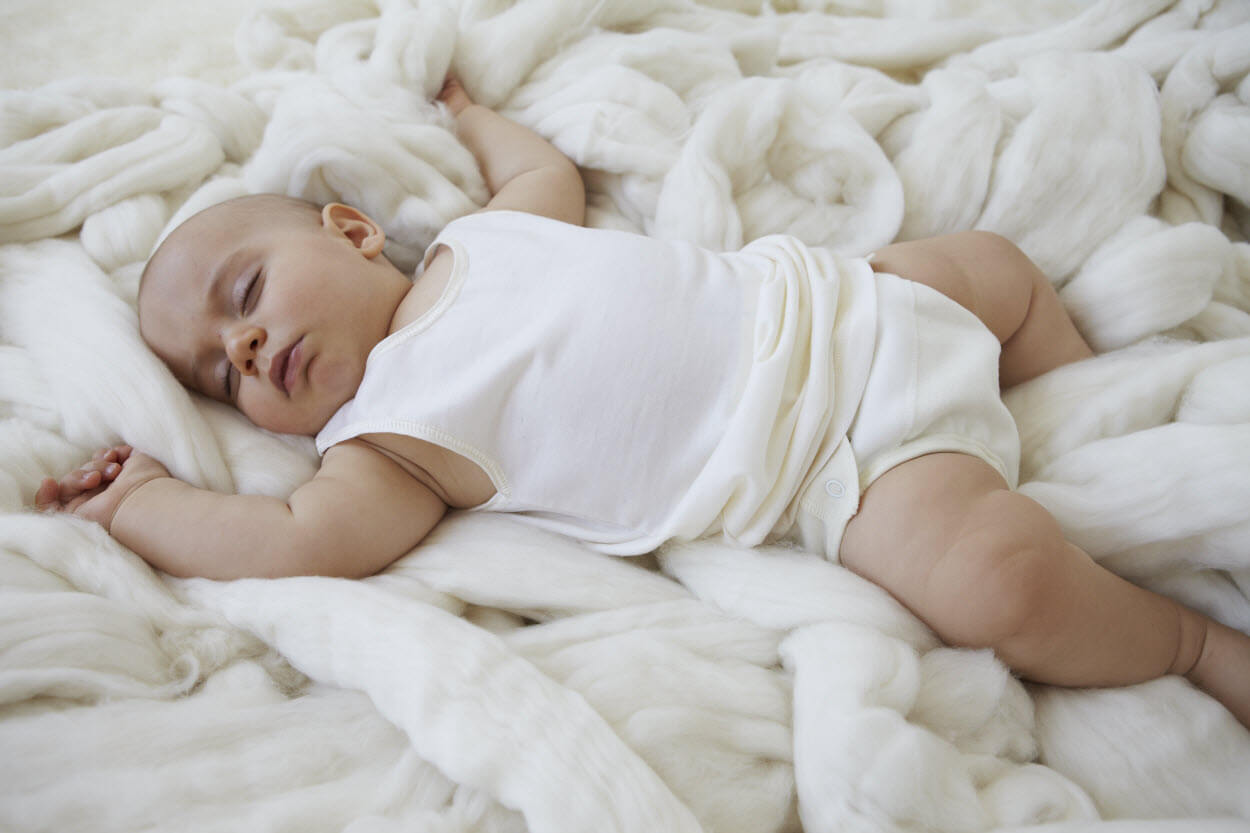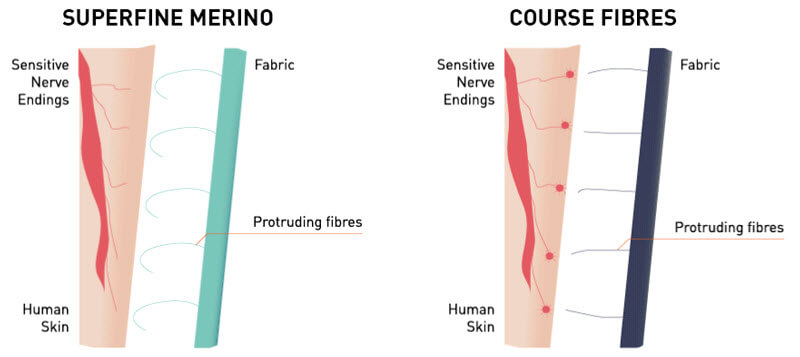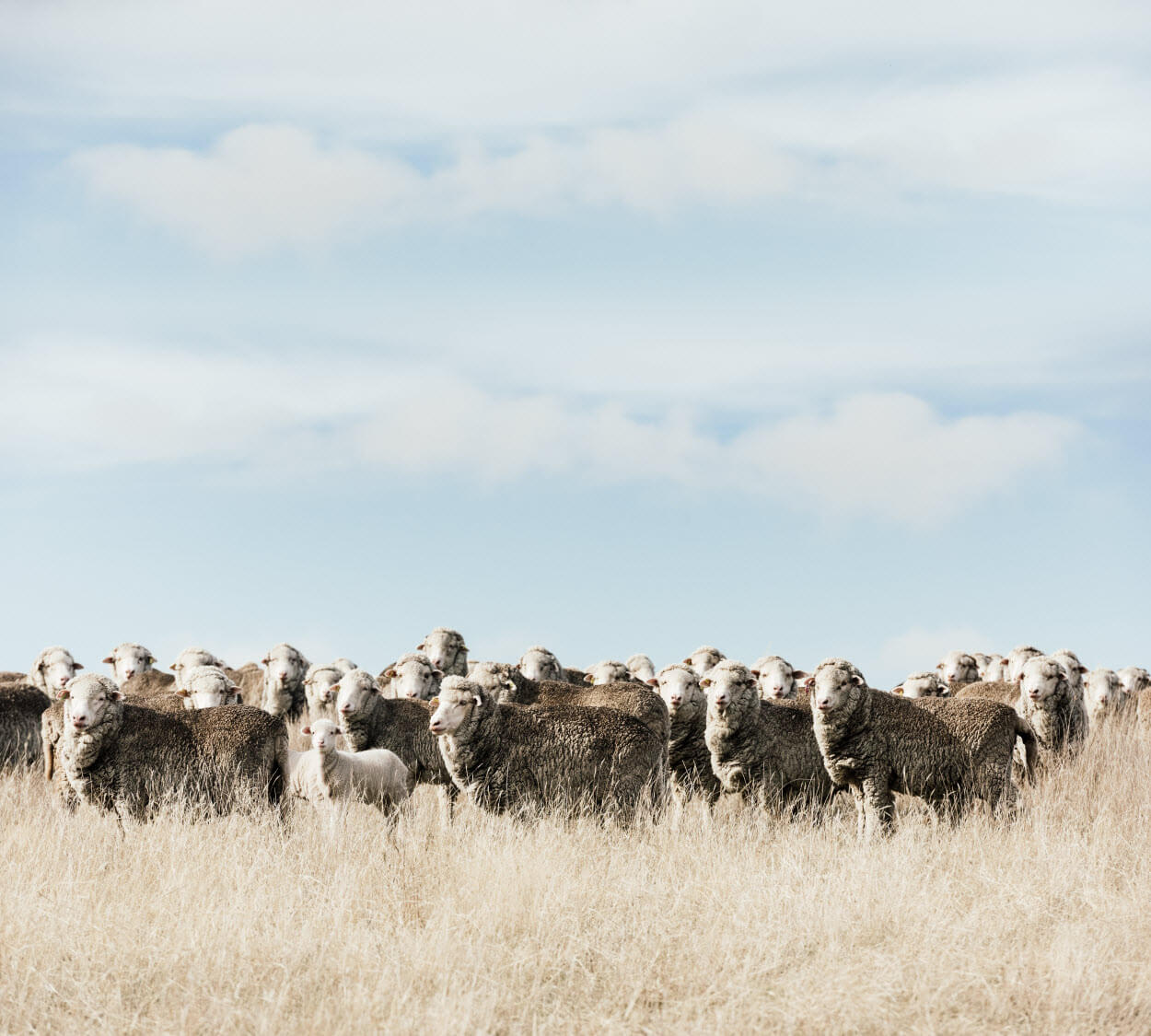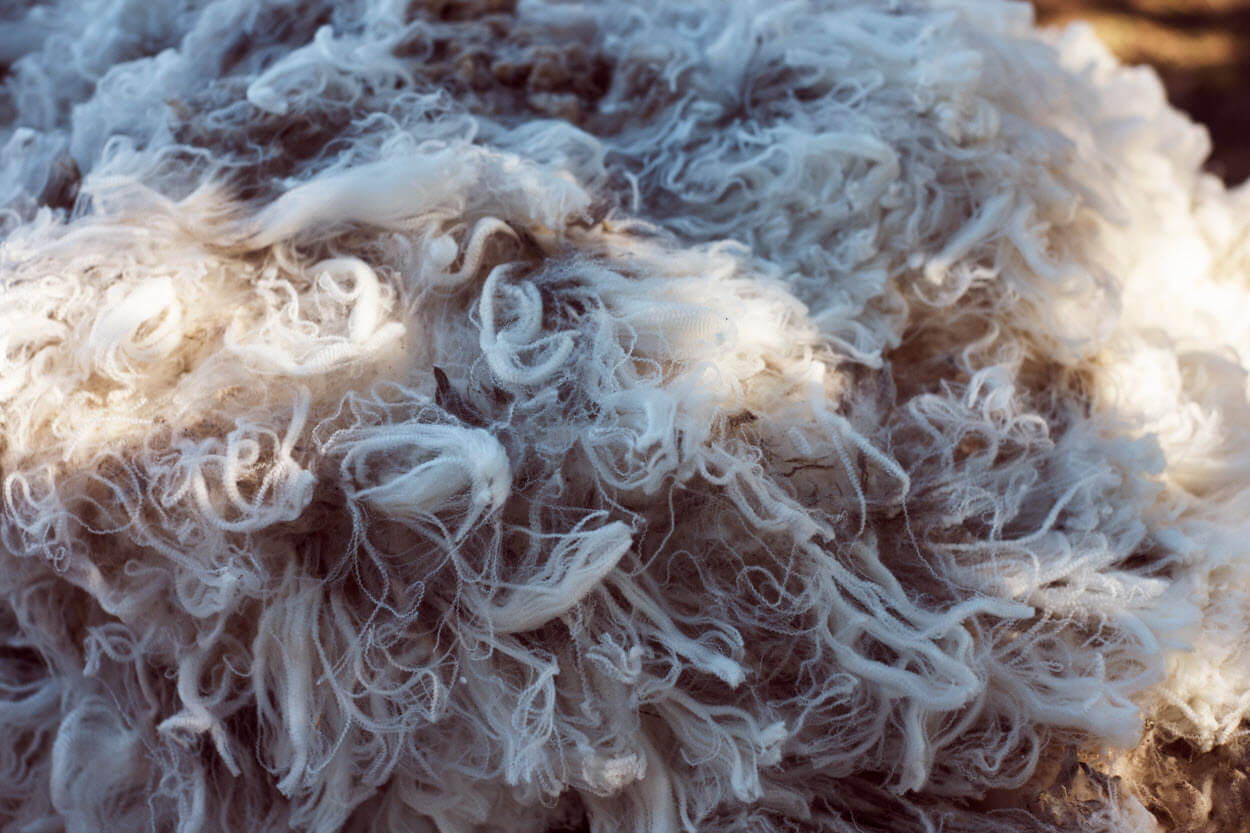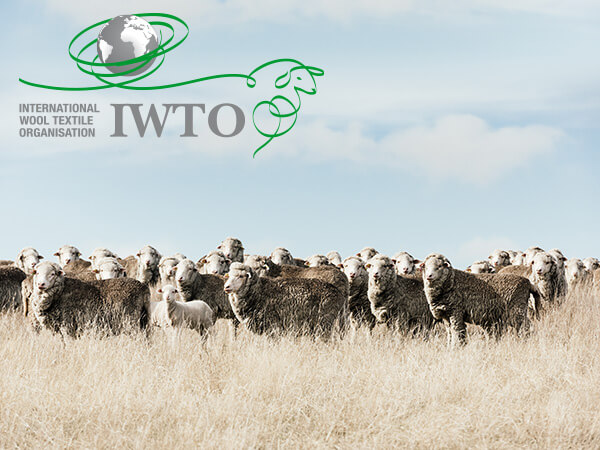
Awareness is growing of the health benefits of wearing wool. Dalena White outlines the latest developments and explains how our clothing choices can affect our wellbeing.
Evidence is building that wool garments offer a compelling and extensive package of benefits for health and wellbeing. Recent studies on skin, sleep and odour resistance are simply the latest of many examples that the industry can cite in making the case for widespread use of one of the oldest fibres known to humans.
Deep thinking is not needed to appreciate that clothing fibre choices must influence health, but in a modern consumer environment in which a staggering array of messages compete for attention, proponents of wool have a big challenge on their hands.
Not only do advocates like the International Wool Textile Organisation (IWTO) have to overcome barriers to purchase that come from deeply embedded historical views, but we also have to find a way to effectively articulate the wide variety of advantages that wool offers.
A growing body of scientific evidence is now helping to make the clear link between wool and wellbeing and is starting to reach key audiences in a way that has never been done before.
Layers of versatility
The fundamental facts have not changed. Sheep’s wool is the animal fibre most commonly used by humans and its attributes have been well researched since the 1950s. In fact, the scientific evidence supporting wool’s health benefits is very well-established, including thermal insulation, breathability, and resistance to the development of body odour and to fire and ultraviolet light.
Throughout history, people who have been exposed to environmentally challenging circumstances – such as explorers, the military, mountaineers and fire fighters – have chosen to use wool in outer layer garments. However, misconceptions about wool’s softness are sometimes a barrier to purchase for consumers who are contemplating wearing it immediately next to the skin.
Several scientific studies have confirmed that skin irritation from garments is due to fabrics with coarse fibres, irrespective of what fibre type is used. Superfine Merino wool is recognised for its next-to-skin softness and has recently been included in studies investigating the health and wellbeing effects of base layer clothing.
It’s noteworthy that participants in these studies did not raise concerns about skin irritation but rather commented favourably about wool’s comfort against their skin. This is an important step for our industry, giving us the empirical evidence that we can use to influence the behaviour of garment manufacturers, the retail trade and consumers.
Wool’s excellent moisture vapour absorbency enables it to maintain a more stable temperature and humidity between the skin and the garment than other fabric types, so researchers have been eager to assess superfine Merino wool’s impact on skin health and sleep quality.
Studies have found that wool is approximately twice as effective as cotton and 10 times better than polyester at moving moisture vapour through the fabric. While moisture flow is typically outwards from the body to the environment, if the skin is dry, as is the case with eczema sufferers, wool works the other way, helping to hydrate the microclimate next to the skin.
Three clinical trials, from 2017 to 2019, showed superfine Merino wool base layer garments to significantly reduce the symptoms of eczema when used in conjunction with usual treatment.
Furthermore, recent research by the Delta Sleep Research Unit at the University of Sydney has shown sleep quality to be improved with superfine Merino wool sleepwear. The study, published in the journal Nature and Science of Sleep, involved healthy participants aged 50-70 sleeping in wool, cotton and polyester sleepwear in warm conditions.
The key finding showed superfine wool sleepwear to significantly shorten the time taken to fall asleep in older participants (12 minutes) compared with cotton (27 minutes) and polyester (22 minutes). Additionally, sleep fragmentation was significantly lower for wool compared with polyester sleepwear, and poor sleepers experienced less wakefulness when wearing wool compared with cotton.
This study suggests eczema patients may benefit most from the combination of improved skin and sleep health, experiencing improved quality of life as a result.
Spreading the word about wool
Each of these thorough recent studies showcases the clear benefits to health and wellbeing of wearing wool garments. This is great for our industry, but only if we use this material in the right way, communicating with relevant audiences.
The good news is that this is already starting to happen. In September 2019, Runner’s World published a feature – ‘What to Wear to Bed When You’re Sweltering and Need to Fall Asleep Fast’ – that cites the University of Sydney research and quotes co-author Chin Moi Chow, Ph.D, who states that the “superior moisture management of the wool sleepwear compared to the cotton and polyester assists in heat buffering and cooling.”
That’s just one article, but it’s there for all to read (and share) on one of the biggest running media platforms in the world (see https://www.runnersworld.com/health-injuries/a29225674/how-to-sleep-better-hot-weather-study/). As our industry continues to campaign positively about the benefits of using wool, an expanded portfolio of compelling and marketable evidence used well will help us influence more people in more sections of society than we have ever managed to reach before.
- Images courtesy of The Woolmark Company.
- Dalena White is Secretary General of the International Wool Textile Organisation (IWTO).
- Learn more about IWTO and its work in wool sustainability at http://www.iwto.org.
Have your say. Tweet and follow us @WTiNcomment


